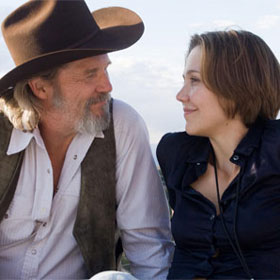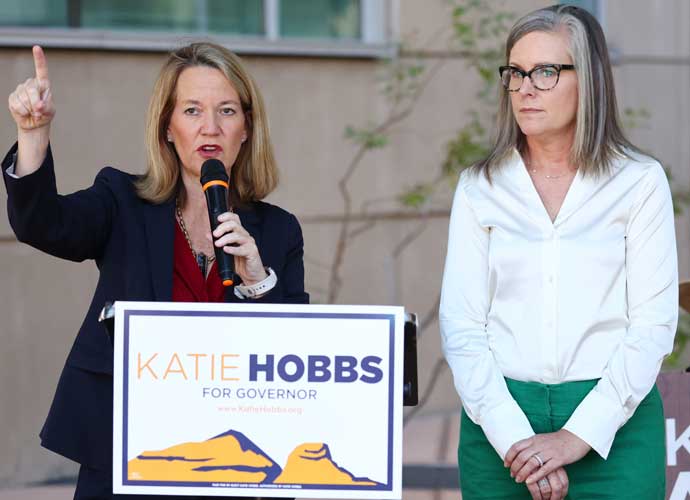Crazy Heart

4/5
Any musician worthy of integrity must compromise many of life’s small pleasures in order to maintain a life on the road. Musicians of a worldly caliber tend to be scattered and often the incapable of maintaining significant relationships, as we see in the primary character of Crazy Heart. The film named for a career changing lyric, Crazy Heart centers around country music veteran Bad Blake as he struggles to rediscover a successful career in music.
Director Scott Cooper incorporates the dichotomy between the modern day country stars of Nashville in Tommy Sweet, Colin Farrel, and that of the 1960’s ideal where sincere music taught lessons of life, love and heartbreak without the heavy production of the present. Crazy Heart unveils the mask of an aging country music artist who continues to strive for recognition despite the rather bleak turn of his career. As the film progresses we begin to see a man unravel to the point of near destruction only to realize what inspires life and in the end a truly great song.
The tone of film is first revealed as Bad Blake exits his very own trashed vintage bronco with a half gallon of road trip urine he most graciously pours out onto the parking lot of his newest bowling alley performance venue. As a well-recognized performer of his decade, Blake is seldom used to local sites and proceeds to make his misery known to both owner and fellow musicians who express nothing but gratitude . As the known alcoholic proceeds to prove the rumor true, he suddenly turns candid with his failing career and severe lack of money to support his lifestyle. Although Blake is appropriately whiskey wasted in almost every frame, we are very quickly made aware of his talent and rightful esteem with the simple and honest lyrics that made him famous and somehow have an appeal that transcends the confines of country music.
As the bar tour continues, Mr. Blake is often approached by desperate women in love with a dead persona now replaced by a drunken sweaty disaster struggling to maintain enough composure to play through an entire set list of songs. After an array of perceived indiscretions, the four times divorcee manages to meet a local reporter Jane played by Maggie Gylenhall who becomes a single source of freedom and comfort to the old man. Over an interview for a local Santa Fe paper, the unconventional pair begin an affection that eventually leads to a tumultuous affair. Through this relationship we begin to see shadows of a man who once used his musical talent to change lives and not bank accounts.
Jeff Bridges is stunning as Blake and perfectly cast in a film that focuses so closely on the inner working of one man. Somehow, despite his consistent staggering circumstance and sometimes sedentary moments of recovery, Bridges remains invested as to never waste and single instant on screen. Not only is the image of Blake nearly perfect, his swagger, attitude and honesty adds a dimension that allows the audience to completely sympathize with a man aiming to improve his quality of live for his new found love.
An unconventional choice for the interest, Maggie Gylenhall manages to shine against Bridges brilliance despite their twenty year age difference. In the end, Cooper noticed a clear chemistry between the two and allowed for their intimacy to reveal the true character of our leading man. Cooper makes another strong choice to cast a very appropriate group of country folk extras and minor character as a way to draw the audience into the unglamorous reality of the film. Instead of filling each frame with Hollywood’s finest, we are met with a casual reality of what happens in the real world of country music in the middle of nowhere.
Bad is most known for masterful skill as a song writer and musician who is capable of reaching country fans from all over the world. Despite this, only a keen eye would notice the discreet way in which Blake is rarely filmed actually playing anything but basic chords on the guitar. Bridges is most definitely playing the instrument, his skills are basic and yet his passion convinces the audience that he is capable of so much more. The initial shock of Colin Farrel as the country music big shot Tommy Sweet soon becomes appropriate as we learn the difference between two drastic differences in country music. While Blake represents the dirty and unproduced music from an earlier decade, Sweet provides a beautiful mainstream contrast of pop/country most recognizable form of today. Tommy is the epitome of what appeals to the current and younger audience and yet his abilty to take the songs of Blake and turn it mainstream is a notable skill that eventually gives the two men credit and inevitably enough funds to continue on with a life of music.
Country music does at times alienate a large group of people and yet this film proves that good music can transcend the confines of any genre. In a final effort to write a new song, Blake lays down Crazy Heart with such an effortless brilliance that we once and for all understand the real talent it takes to have a sustainable career in music. Crazy Heart proves that honesty and commitment is the above all else to key to inspire and create magic. Cooper directs a film that showcases that life can change at any moment and inspiration can always be just around the corner.
Starring: Jeff Bridges, Maggie Gyllenhaal, colin Farrell, Robert Duvall
Director: Scott Cooper
Runtime: 112 Minutes
Distributor: Fox Searchlight
Rating: R
RELATED ARTICLES
Get the most-revealing celebrity conversations with the uInterview podcast!







Leave a comment